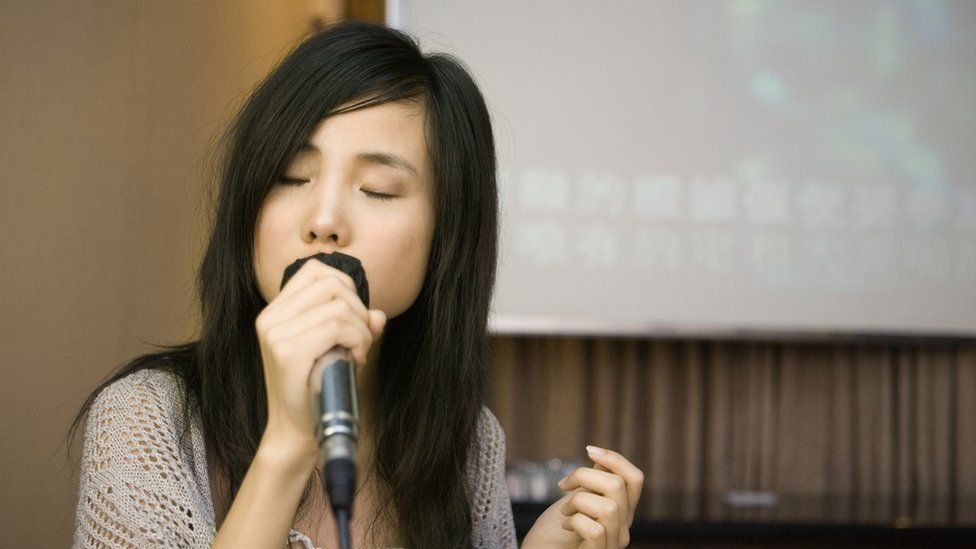China to ban karaoke songs with 'illegal content'
- Published

China is set to ban karaoke songs that contain "illegal content", its Ministry of Culture and Tourism has announced.
Songs that fall under this category include those that endanger national unity, sovereignty or territorial integrity.
Those who provide content to karaoke venues have been urged to review the songs and flag up to the ministry those that are potentially harmful.
The rules are due to come into effect on 1 October.
Other songs that are set to be banned include those which:
- Incite ethnic hatred and ethnic discrimination
- Endanger national security or harm national honour and interests
- Violate the state's religious policies
- Propagate obscenity, gambling, violence and other criminal activities
China has more than 50,000 "song and dance entertainment" venues across the country, according to the ministry.
It added that it was difficult for venue operators to identify illegal songs, given that some had music libraries of more than 100,000 songs - which was why they were encouraging content providers to take more responsibility.
This is not the first time China has banned songs from karaoke venues.
In 2015, the ministry released a blacklist of 120 songs that "trumpeted obscenity, violence, crime or harmed social morality".
Songs like "Beijing Hooligans", "Suicide Diary" and "Don't want to go to school" were among those described as having "severely problematic content", according to a report by state media outlet Global Times.
According to one CNN report, a song called "Fart" was also blacklisted. The lyrics of the song read: "There are some people in the world who like farting while doing nothing."
Censorship is common in China, with social media companies routinely removing content that is perceived to be threatening to social stability or the ruling Communist Party.
Journalist Karoline Kan explains how Chinese social media is censored.
Related Topics
- Published1 September 2019